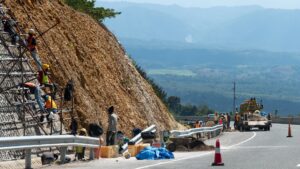Abstract/Description
There is a gap in the education of understanding mountain communities and their challenges, that creates a divide and isolation from those who are not within these geographic locations. Lack of platforms to highlight these lived experiences leaves these communities under-resourced and incapable of addressing the unique issues. Through the inclusive Student Engaged Learning Model (SEL) at Utah Valley University (UVU), this comprehensive curriculum empowers students to independently problem-solve through collaboration with community partners. This allows them to develop the practical skills needed to connect with mountain communities and their needs. With this SEL model, non-traditional students have the ability to provide guidance and mentoring for other students, enriching their experiences of advocacy work and research. In pursuit of the Sustainable Development Goal #4; which addresses quality education, it is important for not only mountain communities to have access to education, but also for outside communities to gain a better understanding of how to confront mountain issues. The collaborative initiative of the Mountain Youth Hub and the Utah International Mountain Forum (UIMF) uplifts mountain communities, who are very often marginalized in political decision making by governments worldwide. UIMF participation in volunteer opportunities in our local community assists in providing a well-rounded perspective of the research we engage in to educate us in the challenges of communities in the mountain.


